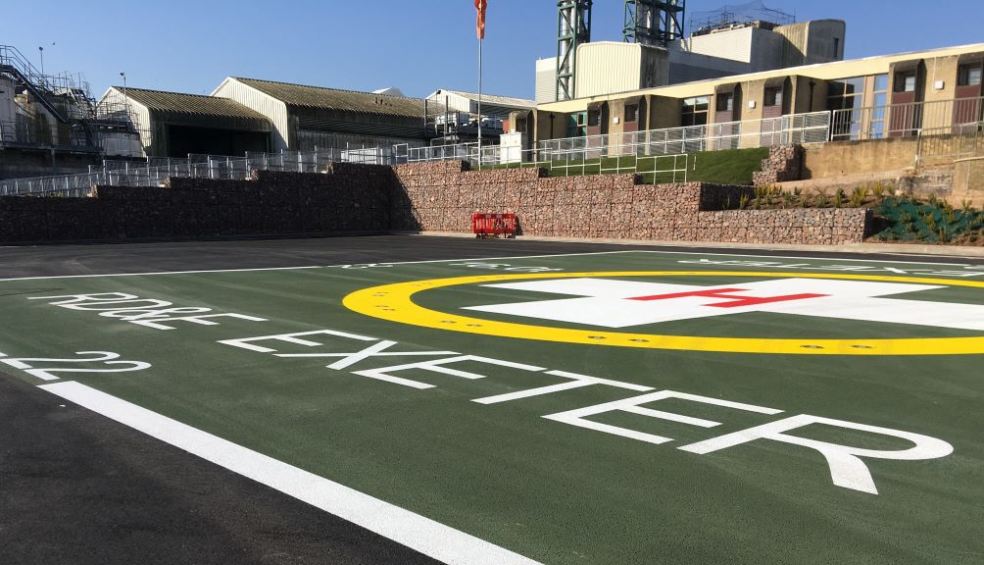
Devon's hospital helipads see 2678 landings out of 20,000 on helipads across the country funded by HELP Appeal
Devon's hospital helipads see 2678 landings out of 20,000 on helipads across the country funded by HELP Appeal
The HELP Appeal, which is the only charity in the country dedicated to funding NHS hospital helipads, announces that over 20,000 landings have been made on the NHS hospital helipads it has funded. Over 13% (2678) of these landings have been made in Devon alone. The HELP Appeal donated £1 million to the upgrade of the Royal Devon and Exeter Hospital helipad, which has seen 192 landings since it opened in 2020 to enable larger helicopters to land during darkness hours; and £850,000 to the helipad at Derriford Hospital, which has seen 2486 landings since it opened in 2015.
Robert Bertram, Chief Executive of the HELP Appeal says: “As the only charity in the country funding helipads at NHS Hospitals, it is enormously rewarding to have achieved this milestone figure.
“Helipads are lifesavers and an important link between air ambulances and hospital Emergency Departments to give a patient the best possible chance. Any delays can significantly change a patient’s outcome as saving time really does save lives.”
Support from actor Hugh Grant
Hugh Grant also understands the benefits of emergency landing pads after he – along with the HELP Appeal - funded a permanent emergency helipad in the remote Highland community of Applecross. He says:
“Over 20,000 landings confirm how essential hospital helipads are across the country for people whose lives are in danger. Every second counts during an emergency, and a helipad right beside the Emergency Department saves time, which helps to give patients the best possible outcome. Well done to the HELP Appeal for making this happen as many lives have been saved and many more will be in the future.”
Helipad’s role in saving lives
Helipads improve patient outcomes as there are risks to patients who, after landing in an air ambulance, have to finish their journey with a life-threatening secondary transfer to hospital by road ambulance, if there is no helipad at the hospital.
“The delay in treatment and movement are both contributory factors. Risks include major physiological derangement, prolonged hospital stays, blood clots, physical injury - including an increased risk of clotting - and death.”
Common hospital treatments for helipad patients
Road traffic accidents, falls and penetrating injuries are usually the main reasons that patients need to be air-lifted to a hospital helipad, as they can cause crush injuries, fractures, brain injuries, extensive blood loss and cardiac arrests, all of which can be life threatening.
Helipad patients are often classed as ‘code red’ meaning that they require life-saving blood products, such as a blood transfusion, as soon as they arrive in the Emergency Department. They can also often require an emergency CT scan so that the hospital can assess them for tissue and bone injuries.
Minutes make all the difference for patients suffering from critical illnesses and injuries. If they are treated more quickly, their chances of recovery and survival improve dramatically. This is why a helipad beside the Emergency Department is vitally important.
To mark 20,000 landings on HELP Appeal funded helipads, the charity is inviting people to take part in a ‘20,000 Steps for Landings’ challenge where people can reach 20,000 steps, to help raise money for 40 helipads in the pipeline. You can visit www.helpappeal.org.uk for more information.













